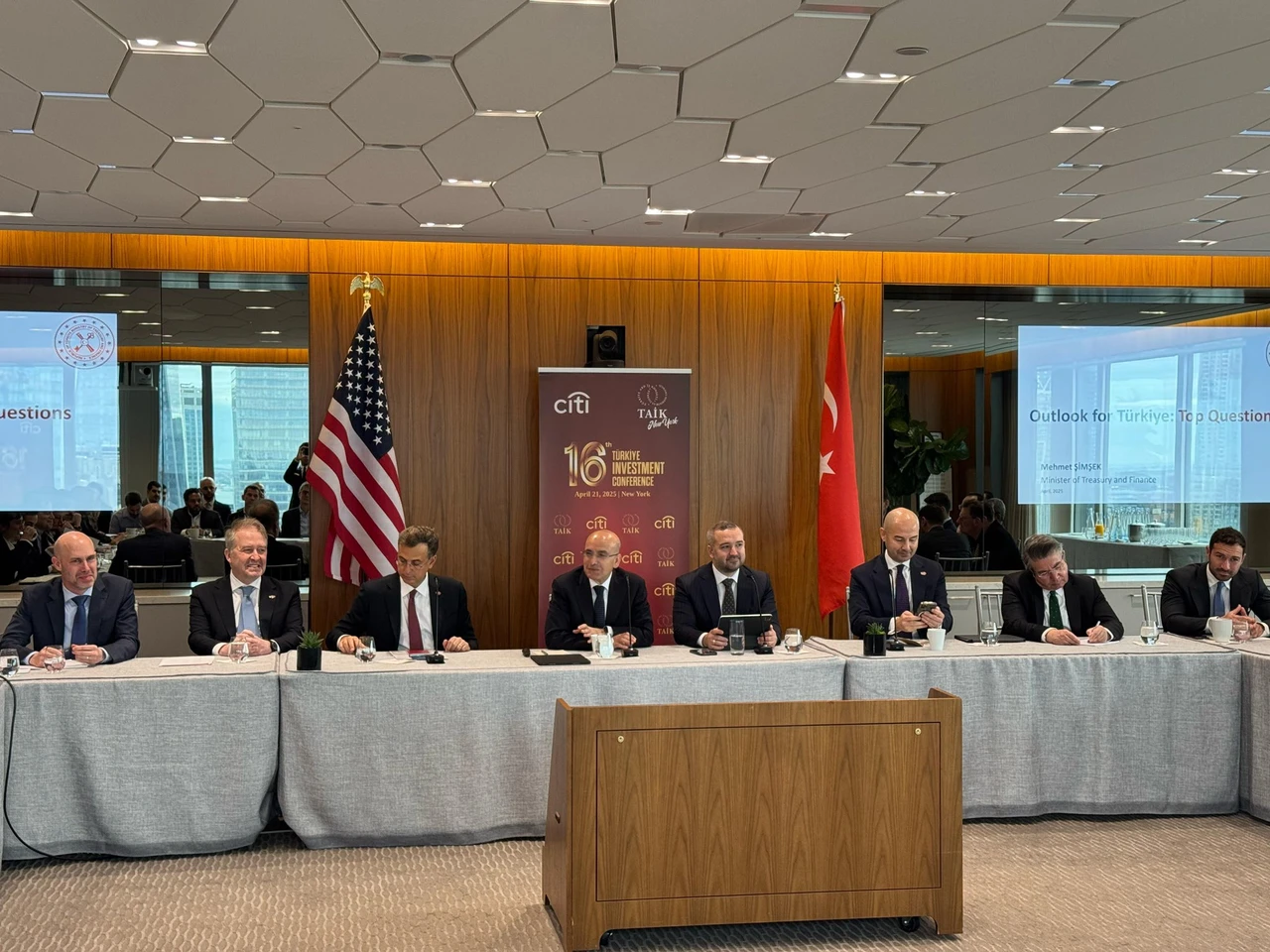Türkiye and Norway align on European security while Gaza humanitarian crisis deepens
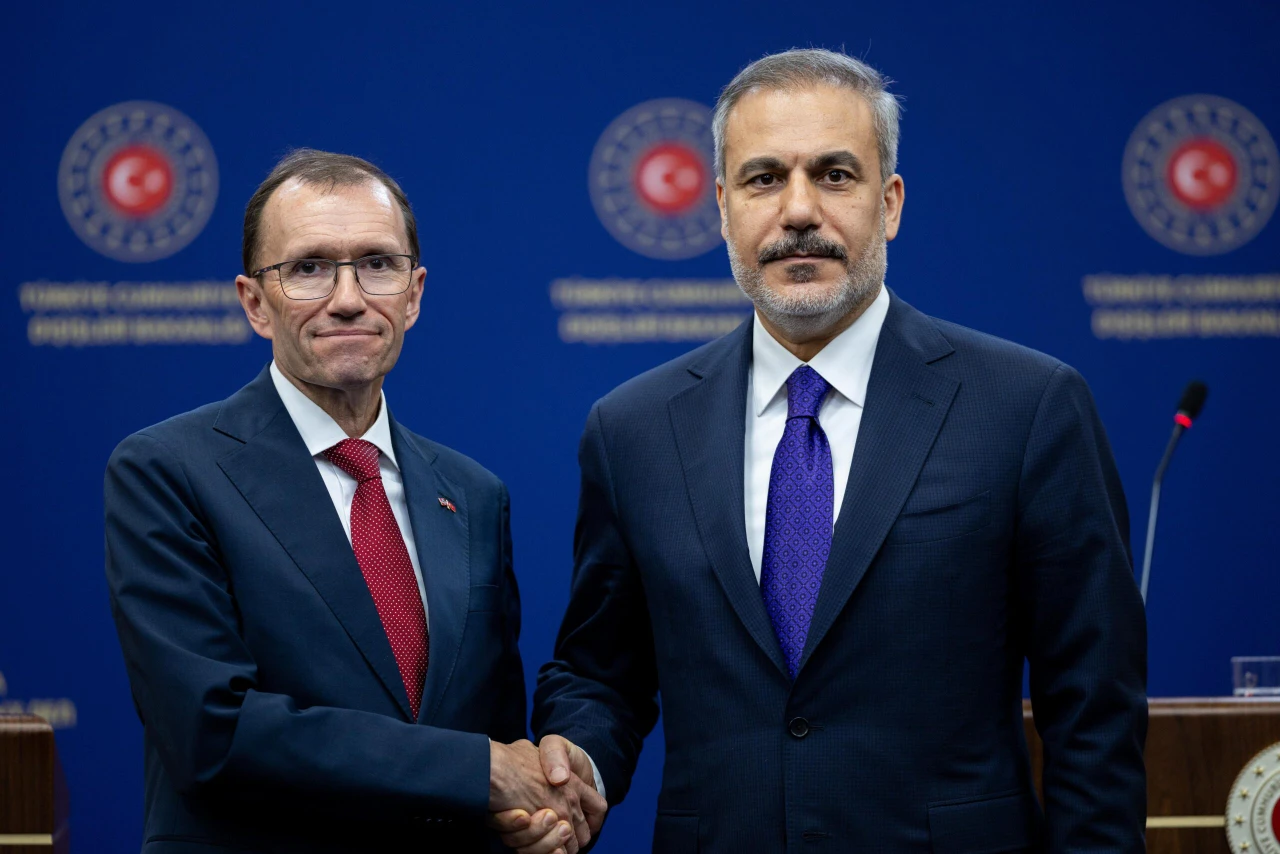 Foreign Minister Hakan Fidan (R) and Norwegian Foreign Minister Espen Barth Eide (L) shake hands as they meet in Turkish capital Ankara on April 24, 2025. (AA Photo)
Foreign Minister Hakan Fidan (R) and Norwegian Foreign Minister Espen Barth Eide (L) shake hands as they meet in Turkish capital Ankara on April 24, 2025. (AA Photo)
Foreign Minister Hakan Fidan strongly condemned Israel’s ongoing military operations in Gaza during a joint press conference with Norwegian Foreign Minister Espen Barth Eide at the Turkish Foreign Ministry in Ankara on Thursday.
Fidan emphasized that humanitarian aid has been blocked from entering the besieged territory for more than 50 days, creating a dire humanitarian crisis.
Humanitarian crisis deepens in Gaza as aid remains blocked
“Israel’s massacres in Gaza continue with all their violence before the eyes of the world,” Fidan declared during the press conference. “Humanitarian aid has not been allowed to enter Gaza for more than 50 days. Hunger cannot be used as a weapon, as a political bargaining chip, or as a tool of punishment.”
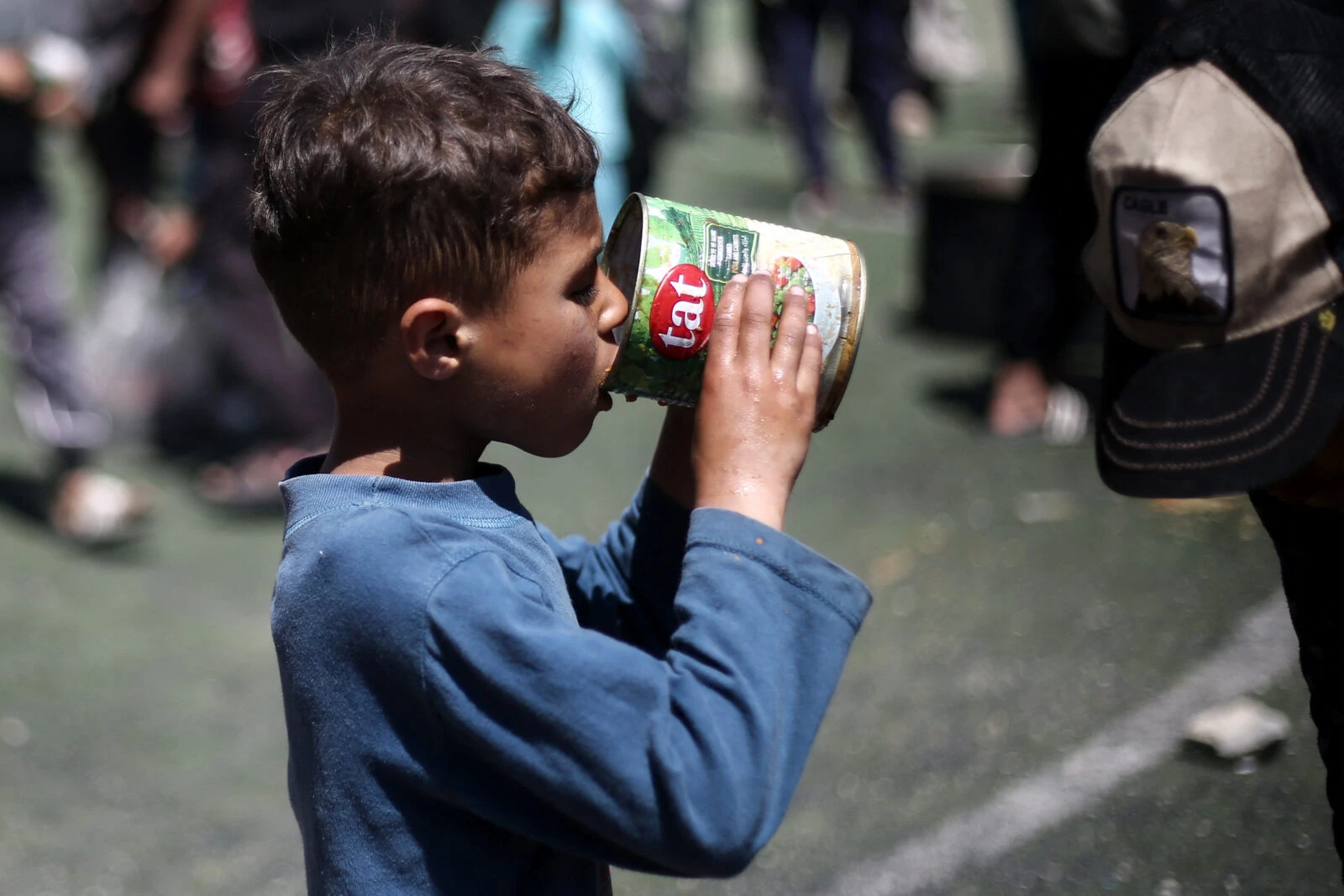
The foreign minister stressed that uninterrupted and continuous delivery of humanitarian aid to Gaza must be ensured immediately. He emphasized that no country stands above international law and called for “an immediate end to Israel’s actions that violate the law and human conscience.” Türkiye has been a vocal critic of Israel’s military campaign in Gaza since the conflict began.
Fidan expressed gratitude to Norway for hosting the Organization of Islamic Cooperation-Arab League Gaza Contact Group meeting in December 2023 and for participating in a subsequent meeting held in Antalya on April 11. He acknowledged Norway’s support for Palestine in international forums and praised its decision to recognize the Palestinian state last year as “a very important and meaningful step.”
Israel’s ‘expansionist mindset’ threatens regional stability
Foreign minister identified Israel’s territorial ambitions as the primary threat to stability across the region.
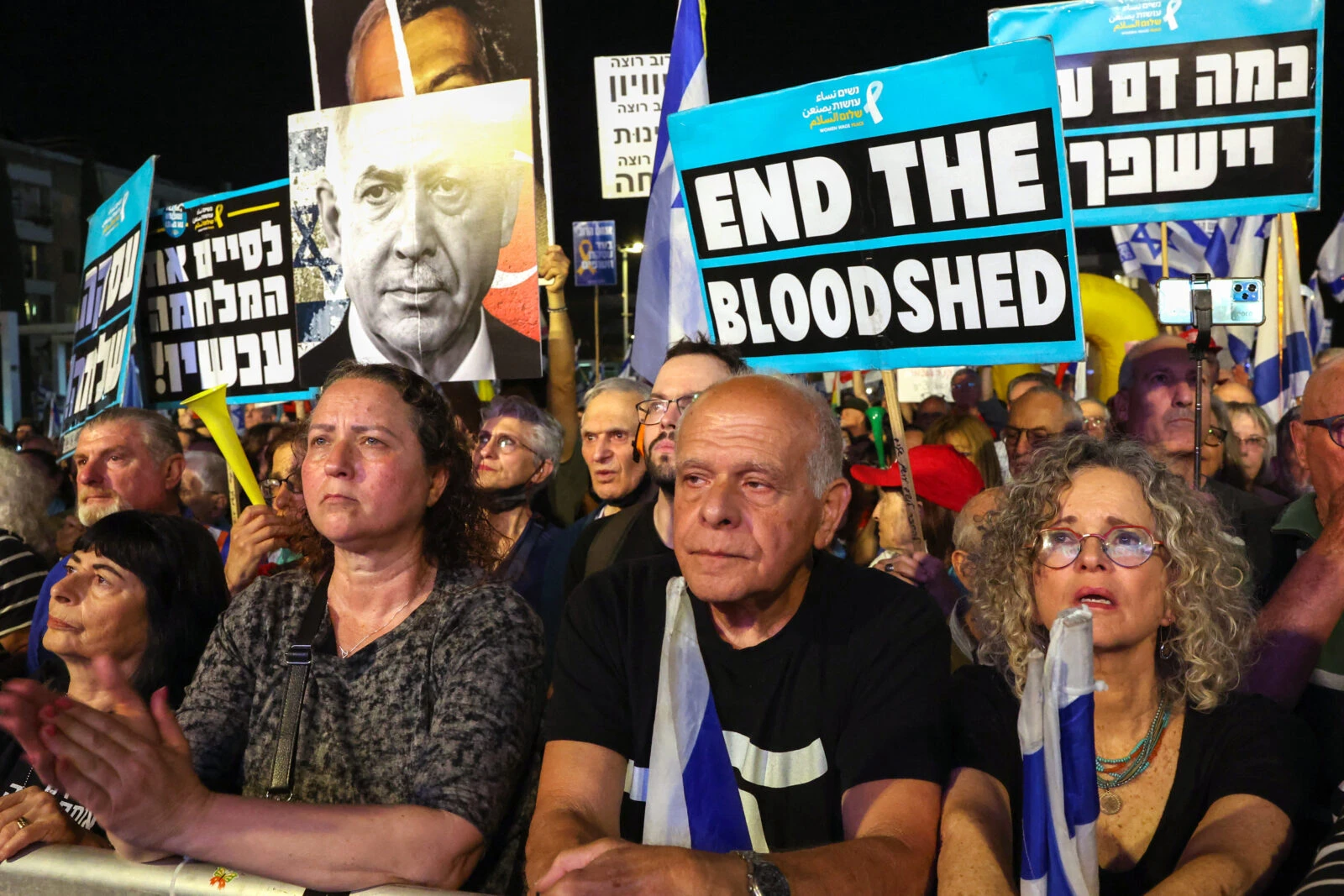
“Currently, the biggest threat to stability in our region is Israel’s expansionist mindset,” Fidan stated. “Israel thinks it can ensure its own security by occupying Palestinian territories and weakening neighboring countries. This strategy is completely wrong.”
He emphasized that establishing a Palestinian state is the only solution that will secure the safety of countries in the region, including Israel itself. Fidan reiterated that Türkiye would continue its efforts resolutely in this direction, underscoring that the struggle for the rights of the Palestinian people would simultaneously enable the establishment of regional security.
Türkiye and Norway strengthen bilateral relations ahead of centenary
During the press conference, Fidan also highlighted the strategic cooperation between Türkiye and Norway, noting that diplomatic relations between the two countries will mark their 100th anniversary in 2026. He described Norway as a respected partner that supports multilateral diplomacy, international law, and peaceful solutions, with whom Türkiye shares similar views on many international and regional issues.
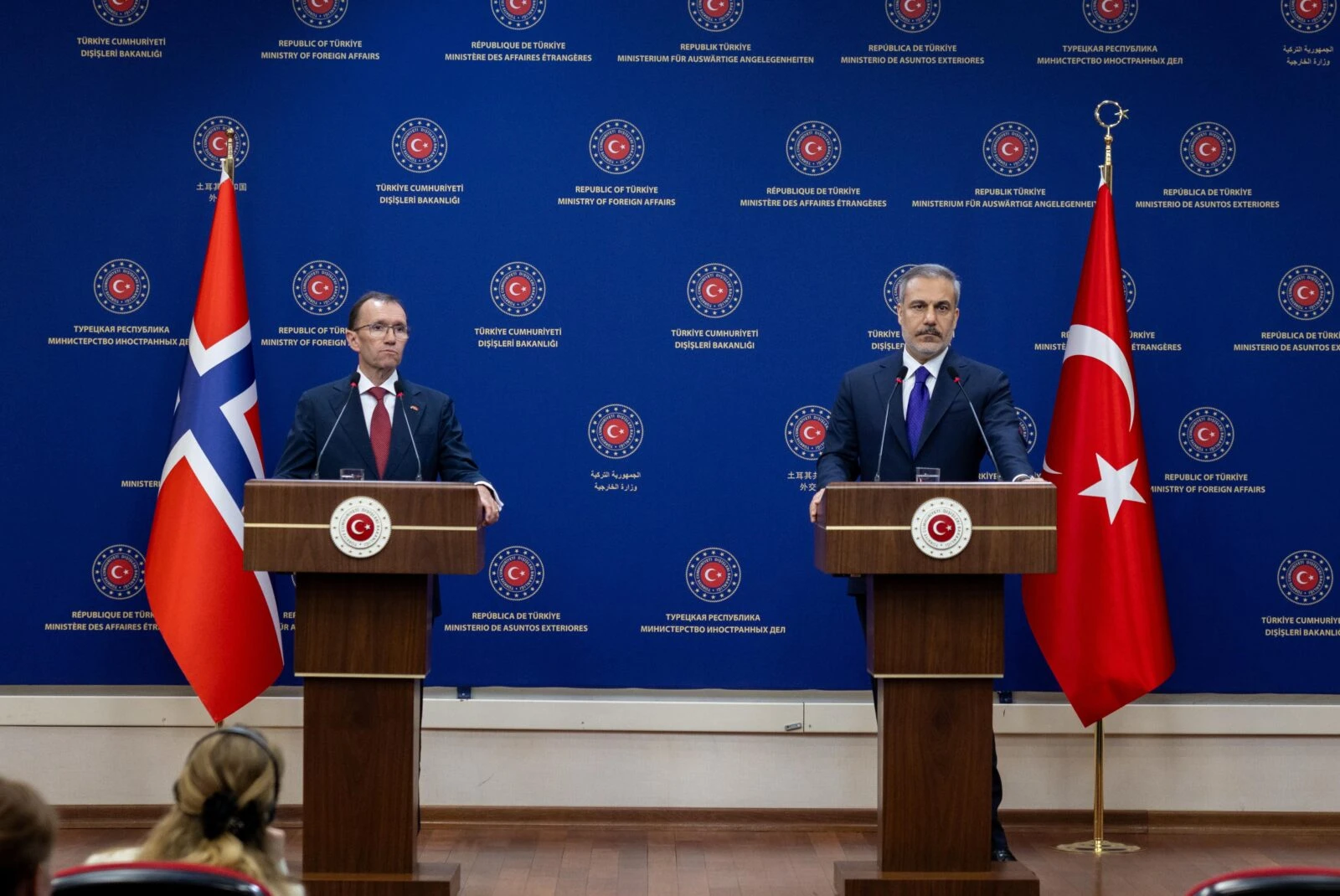
“We are determined to further strengthen our deep-rooted relations with Norway,” Fidan said. He expressed satisfaction with the increasing number of ships being built in Turkish shipyards for Norway and mentioned plans to develop cooperation in the defense industry sector.
“We are encouraging relevant institutions and companies to work on concrete projects in the coming period,” the foreign minister added, noting that they had also discussed counter-terrorism efforts during their meeting and conveyed Türkiye’s expectations regarding terrorist organizations such as FETÖ and PKK.
European security architecture requires inclusive approach
As two NATO members that are not European Union members, Fidan emphasized that Türkiye and Norway believe all steps regarding European security should be shaped with their contributions.
“As two NATO allies, the future of European security is of great importance to us,” he said. “As countries like Türkiye and Norway, which are NATO members but not European Union members, we believe that all steps regarding European security should be shaped with our contributions.”
Fidan noted that discussions about European security architecture had intensified following the start of the Russia-Ukraine war and with the new administration in the United States. He highlighted Türkiye’s strategic insistence that there should be a single security architecture under NATO, without distinctions between EU and non-EU members.
The foreign minister addressed the challenges of a divided approach to European security, warning that separating “EU members and non-EU members” in the European region would encourage the search for different alliances. He emphasized that European nations must take primary responsibility for their own security.
“If we live in this geography as the broader European family, whether EU members or not, establishing the security and peace of this geography should primarily be our job,” Fidan stated. “We must demonstrate determination in producing capability and cooperation models in this regard.”
He concluded with a stark warning about relying on external protection: “Relying on the principle that someone else will always come and protect our neighborhood is not a strategic approach. God forbid, if one day the help you expect doesn’t arrive, you’ll be left vulnerable. We will continue to maintain a multifaceted, multi-geographical, multilayered security strategy.”
In response to questions about Cyprus, Fidan reaffirmed Türkiye’s support for a two-state solution model following the collapse of federation talks at Crans-Montana in 2017. He rejected any negotiation process that would lead to further isolation of Turkish Cypriots and dismissed claims of drilling on Türkiye’s continental shelf as “untrue,” reiterating Ankara’s commitment to protecting its rights in the Eastern Mediterranean.


